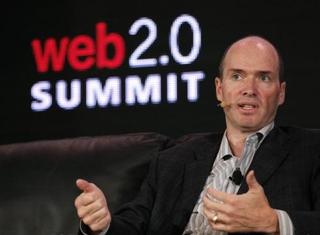
Through the Looking Glass: Hiring Sales People B Horowitz (Ft. Run–DMC)
На этой странице вы найдете полный текст песни "Through the Looking Glass: Hiring Sales People" от B Horowitz (Ft. Run–DMC). Lyrxo предлагает вам самый полный и точный текст этой композиции без лишних отвлекающих факторов. Узнайте все куплеты и припев, чтобы лучше понять любимую песню и насладиться ею в полной мере. Идеально для фанатов и всех, кто ценит качественную музыку.

“He's a big bad wolf in your neighborhood
Not bad meaning bad, but bad meaning good”
—Run DMC, Peter Piper
Perhaps the most common mistake that I see a technical founder make when building her sales organization is she applies strategies that worked in building the engineering team to the sales hiring process. This may sound shocking, but sales people are different than engineers and treating them like engineers does not work well at all.
It starts with the hiring process. If you attempt to hire sales people using the same assumptions that worked with engineering, then here are some of the things that will go wrong:
The Interview
A good engineering interview will include some set of difficult problems to solve. It might even require that the candidate write a short program. In addition, it will test the candidate’s knowledge of the tools she uses in great depth. A small portion of the interview may address personality traits, but smart managers will tolerate a very wide variety of personalities to find the best engineers.
A good sales interview is the opposite. You can quiz them on hard sales problems all day long, but only a horrible sales rep won’t be able to bluff her way through the most intricate quiz on how to sell a complex account. On the other hand, great sales people tend to have very specific personality traits. Specifically, great sales people must be courageous, competitive and hungry. They also need enough intelligence to get the job done. That’s the magic formula. Hire engineers with that profile and you’ll fail. Hire sales people who are really smart problem solvers, but lack courage, hunger and competitiveness, and your company will go out of business.
Dick Harrison, CEO of Parametric Technologies, home of perhaps the greatest enterprise sales force ever built, interviewed Mark Cranney, the greatest sales manager I have ever met, as follows:
Dick: "I'll bet you got into a lot of fights when you were a youth didn't you?"
Mark: "Well yes, Dick, I did get into a few."
Dick: "Well, how'd you do?"
Mark: "Well, I was about 35-1."
Dick: "Tell me about the 1."
Mark tells him the story, which Dick enjoys immensely.
Dick: “Do you think you could kick my ass?”
Mark pauses and asks himself: “Is Dick questioning my courage or my intelligence?” Then replies: “Could or would?”
Dick hires Mark on the spot.
Not bad meaning bad, but bad meaning good”
—Run DMC, Peter Piper
Perhaps the most common mistake that I see a technical founder make when building her sales organization is she applies strategies that worked in building the engineering team to the sales hiring process. This may sound shocking, but sales people are different than engineers and treating them like engineers does not work well at all.
It starts with the hiring process. If you attempt to hire sales people using the same assumptions that worked with engineering, then here are some of the things that will go wrong:
The Interview
A good engineering interview will include some set of difficult problems to solve. It might even require that the candidate write a short program. In addition, it will test the candidate’s knowledge of the tools she uses in great depth. A small portion of the interview may address personality traits, but smart managers will tolerate a very wide variety of personalities to find the best engineers.
A good sales interview is the opposite. You can quiz them on hard sales problems all day long, but only a horrible sales rep won’t be able to bluff her way through the most intricate quiz on how to sell a complex account. On the other hand, great sales people tend to have very specific personality traits. Specifically, great sales people must be courageous, competitive and hungry. They also need enough intelligence to get the job done. That’s the magic formula. Hire engineers with that profile and you’ll fail. Hire sales people who are really smart problem solvers, but lack courage, hunger and competitiveness, and your company will go out of business.
Dick Harrison, CEO of Parametric Technologies, home of perhaps the greatest enterprise sales force ever built, interviewed Mark Cranney, the greatest sales manager I have ever met, as follows:
Dick: "I'll bet you got into a lot of fights when you were a youth didn't you?"
Mark: "Well yes, Dick, I did get into a few."
Dick: "Well, how'd you do?"
Mark: "Well, I was about 35-1."
Dick: "Tell me about the 1."
Mark tells him the story, which Dick enjoys immensely.
Dick: “Do you think you could kick my ass?”
Mark pauses and asks himself: “Is Dick questioning my courage or my intelligence?” Then replies: “Could or would?”
Dick hires Mark on the spot.
Комментарии (0)
Минимальная длина комментария — 50 символов.












